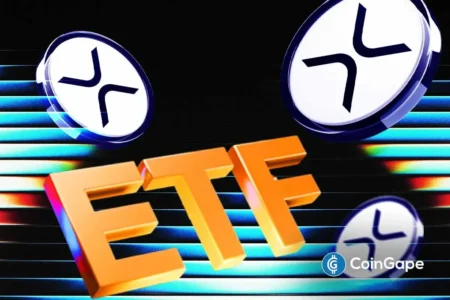Title: Donald Trump Signs Key Legislation to Repeal IRS DeFi Reporting Rule: Game Changer for Crypto Regulation
In a historic move, U.S. President Donald Trump has signed a joint resolution intended to repeal an IRS rule impacting decentralized finance (DeFi) platforms. This legislation has garnered significant bipartisan support, marking a pivotal moment in the evolving landscape of cryptocurrency regulation. By preventing the IRS from enforcing stringent tax reporting requirements on DeFi protocols, this bill signifies a reassessment of how digital assets and technologies are governed in the United States.
The resolution passed through both the Senate and House after extensive legislative deliberation, with Senator Ted Cruz serving as a key advocate in the Senate. The Senate ultimately approved the resolution with a decisive 70-28 vote on March 26, following the House’s approval on March 11. This joint resolution, being the first crypto-related bill signed into law by a U.S. president, reflects a growing recognition of the importance of fostering innovation in the cryptocurrency domain. With broad support across party lines, the legislation indicates a shift in Washington’s attitude toward emerging financial technologies.
The repealed IRS DeFi broker rule had been instituted during the Biden administration and was aimed at broadening tax reporting standards for DeFi platforms. Under this rule, DeFi operators would have been required to report gross proceeds from crypto transactions while disclosing the identities of the parties involved. While intended to enhance oversight and close tax gaps in the cryptocurrency sector, this regulation was met with substantial criticism from both the crypto industry and various lawmakers. Opponents argued that the inherently decentralized nature of DeFi tools renders it nearly impossible to collect the required user data, potentially stifling innovation and development in an already nascent market.
In the wake of Trump’s signing, the legislation is expected to liberate DeFi platforms from stringent IRS tax obligations. This newfound freedom will allow developers and operators of decentralized protocols to navigate their ecosystems without facing excessive compliance burdens for regulations that are practically unfeasible. Such a shift not only nurtures innovation but also signals to the broader market that federal policymakers are beginning to embrace a more favorable view of decentralized technologies.
Senator Cruz aptly characterized the IRS rule as an "attack on emerging technologies that could transform financial systems." His advocacy for the resolution attracted bipartisan backing from lawmakers emphasizing the necessity for crypto regulations that encourage innovation, rather than stifling it. Furthermore, David Sacks, the White House advisor on AI and crypto, highlighted the administration’s commitment to navigating away from overregulation, endorsing the need for clearer policies that promote technological growth.
The implications of this legislation extend beyond immediate regulatory relief; it symbolizes a broader realignment in how federal authorities seek to manage the cryptocurrency landscape. The DeFi Education Fund and other industry groups have supported this resolution, as they see it as a step toward more pragmatic and growth-oriented crypto policy within the United States. By formalizing a stance that prioritizes technological advancement and decentralization, this legislation sets the stage for an environment more conducive to blockchain innovation and development in the U.S.
In conclusion, Donald Trump’s enactment of this resolution represents a significant milestone in the legislative journey of cryptocurrency regulation in America. It illustrates a growing acknowledgment within U.S. governance of the transformative potential of digital finance and acknowledges the need for regulatory frameworks that promote innovation over restriction. As the DeFi space continues to evolve, the commitment to fostering a nurturing regulatory environment could lay the groundwork for more expansive technological advancements, encouraging not just domestic growth but also positioning the U.S. as a leader in the global crypto landscape.
Through this pivotal legislation, stakeholders in the crypto market can expect a more supportive framework that acknowledges the unique characteristics of decentralized finance platforms. The deconstruction of the IRS’s strict reporting requirements may pave the way for wider adoption and innovation within the ecosystem, ultimately fostering a more vibrant and forward-looking finance industry.
















